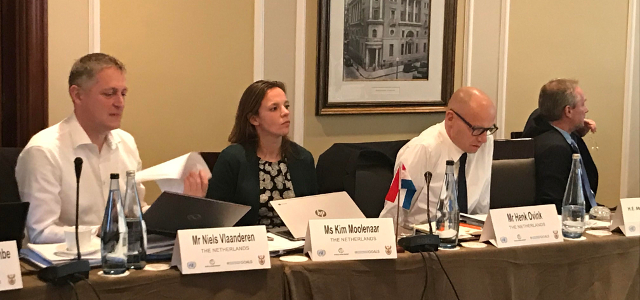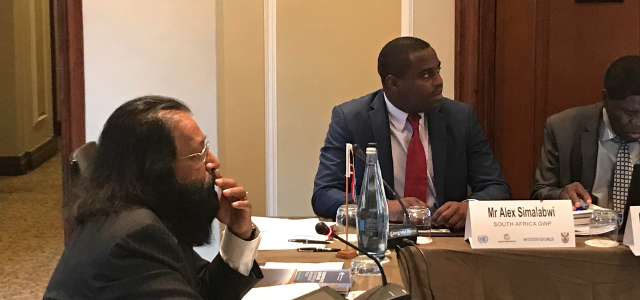This was revealed at the 13th Meeting of the ‘Sherpas’/Advisors of the High Level Panel on Water in Cape Town, South Africa. South Africa – working closely with other African members of the HLPW – Mauritius, Senegal, and others is being supported by GWP to follow up on the recommendations of the HLPW and implement an Africa HLPW legacy initiative: The Africa Investment programme on Water, Job creation and SDGs implementation.
The Africa legacy Initiative will include and promote relevant activities of the HLPW Water Action Decade- 2018-2028, and also build on ongoing GWP support to South Africa on the HLPW, valuing water consultations and other related work on Water, Climate and Development with the African Union and African Ministers Council on Water (AMCOW).
In addition to supporting the valuing water consultations, GWP confirmed its commitment to continue as a friend of the Panel and support the HLPW agenda even after its mandate expires in March 2018. Mauritius confirmed its interest and continue to engage with South African and GWP on an Africa Legacy HLPW initiative as a vehicle to implement HLPW outcomes of relevance to Africa water development and SDG agenda.
The HLPW set out to raise the profile of water in addressing the Sustainable Development Goals (SDGs). Achieving the SDGs will require governments, societies, and the private sector to change the way they use and manage water.
The legacy of the HLPW will be measured in terms of the extent to which the global effort on achievement of SDGs embed water and sanitation as a key part of the 2030 Sustainable Development Agenda. Today, water governance decisions and actions are fragmented across UN agencies, national line ministries and water authorities.

In this regard, discussions around the global water architecture – to strengthen the UN system wide effort on coordinated and conceited water actions – are progressive. The role of water must be specified in Nationally Determined Contributions (NDCs) to address climate change and to contribute to the Paris Agreement as well as the 2030 Agenda. Vulnerable countries in particular need special highlight and attention, especially on financing.
As the Panel considers its final outcome package, GWP looks forward to the findings and hopes that this will build on previous work by others including the High Level Panels on Water and Peace, Water and Disasters, and others.
The HLPW is also called upon to consider flagship regional and national initiatives that will serve as mechanisms for implementing the outcomes of the Panel and actualise water and sanitation as a centre piece of SDG implementation.
The ongoing support by GWP to the South African government on the HLPW will continue and this will build on ongoing GWP support to South Africa on the HLPW and other related work on Water, Climate and Development with the African Union and African Ministers Council on Water (AMCOW).
